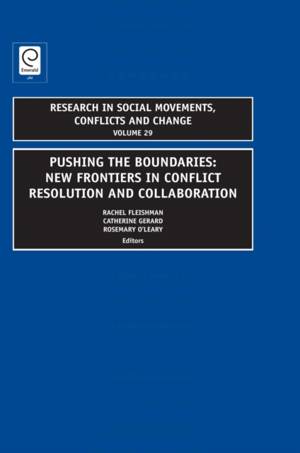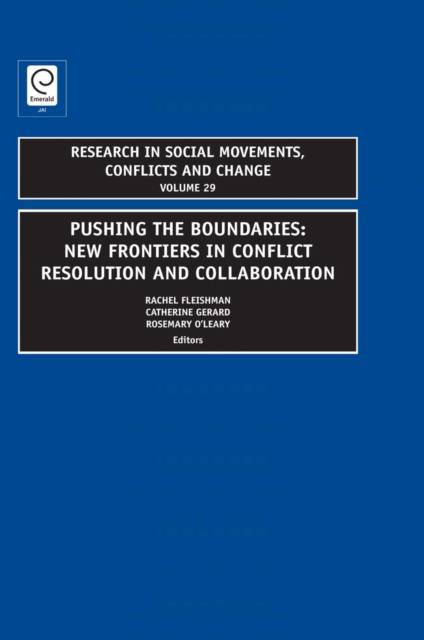
- Afhalen na 1 uur in een winkel met voorraad
- Gratis thuislevering in België vanaf € 30
- Ruim aanbod met 7 miljoen producten
- Afhalen na 1 uur in een winkel met voorraad
- Gratis thuislevering in België vanaf € 30
- Ruim aanbod met 7 miljoen producten
Zoeken
Pushing the Boundaries
New Frontiers in Conflict Resolution and Collaboration
€ 116,45
+ 232 punten
Omschrijving
The research papers in this volume were initially presented at a conference, entitled 'Cutting Edge Theories and Recent Developments in Conflict Resolution', which celebrated the 20th anniversary of the Program on the Analysis and Resolution of Conflict (PARC). Presenters were encouraged to submit their papers for consideration, and following a rigorous peer review and revision process, nine articles were accepted. The volume explores some of the major themes of conflict analysis, including how powerful dominant discourses can both soothe and exacerbate conflict, the role of civic organizations in promoting peace and incubating democratic principles, the ways in which different forms of dialogue are used to heal historically dysfunctional inter-group relations, and the importance of a deeply institutional, structural understanding of ethnocentrism and racism.The authors conducted their research in several different countries - the U.S., Canada, Bosnia, and Northern Ireland - and used a wide range of analytical techniques including in-depth interviews, surveys, and document analysis. What holds them together is the rigorous tie they make between theory and empirical data. Some authors have built conflict theory inductively, based on their own research and/or secondary sources (e.g. Keles, Coy, et al, and Funk-Unrau), while others have tested existing models with empirical data (e.g. Hemmer, Getha-Taylor, and Pincock). These articles collectively make a solid contribution to theoretical development in the conflict analysis field.
Specificaties
Betrokkenen
- Uitgeverij:
Inhoud
- Aantal bladzijden:
- 200
- Taal:
- Engels
- Reeks:
- Reeksnummer:
- nr. 29
Eigenschappen
- Productcode (EAN):
- 9781848552906
- Verschijningsdatum:
- 13/11/2008
- Uitvoering:
- Hardcover
- Formaat:
- Ongenaaid / garenloos gebonden
- Afmetingen:
- 157 mm x 231 mm
- Gewicht:
- 612 g

Alleen bij Standaard Boekhandel
+ 232 punten op je klantenkaart van Standaard Boekhandel
Beoordelingen
We publiceren alleen reviews die voldoen aan de voorwaarden voor reviews. Bekijk onze voorwaarden voor reviews.










